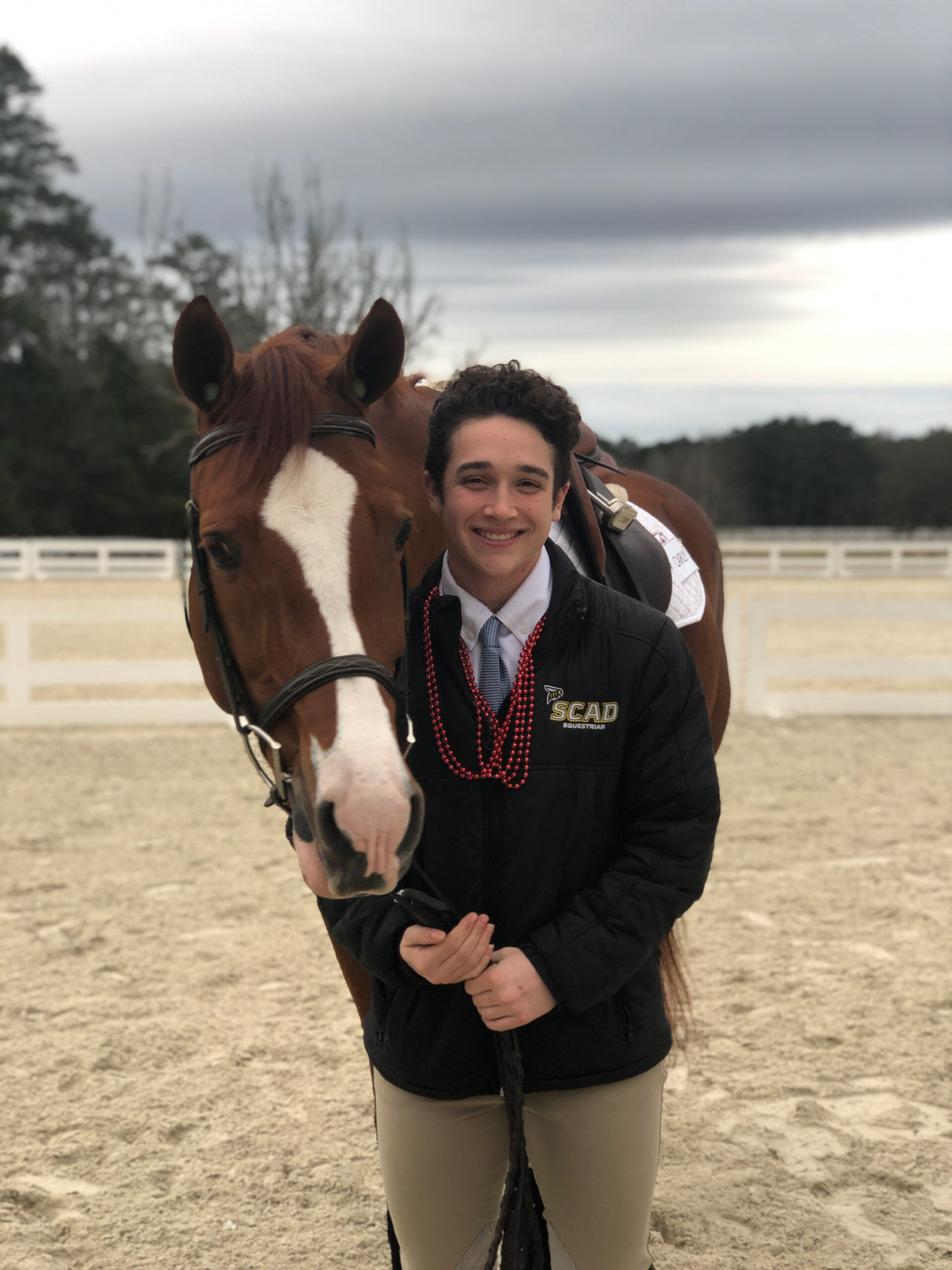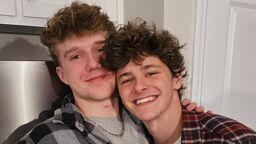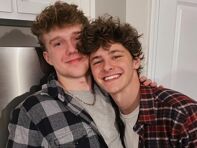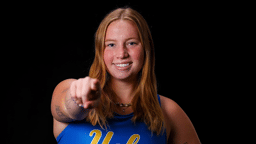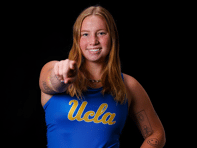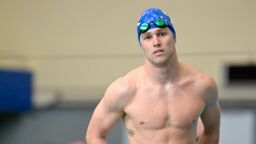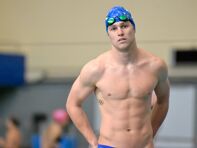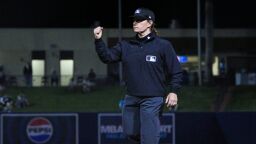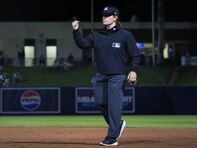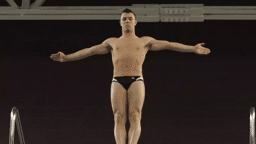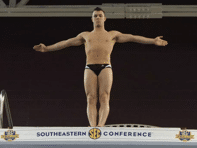When I decided to attend Mount Holyoke College — an all-women’s institution — I still identified as a lesbian.
I chose the school because I was relatively shy and according to a blog that my mother found, it had a learning environment where I wouldn’t feel constrained by the social pressures found in a male-dominant environment. Of course, the school’s nationally recognized equestrian team was a big draw too, especially since I had dreamed of competing at the collegiate level since I was 7.
During Christmas break freshman year, I returned home, excited to show everyone at the barn how much the team had helped me improve. Rage and jealousy soon replaced this excitement following a reunion with an old friend who had just received top surgery after coming out as transgender months prior. By the time I returned to school, I was doubting everything I thought I knew about myself.
Over the course of the next several weeks, I became more distant. My anxiety was at an all-time high and I knew I had to talk to someone about my qualms. Unfortunately, the fear of rejection stopped me. That is, until I received a group email from one of my teammates asking to go by a different name and alternative pronouns.
Get off the sidelines and into the game
Our weekly playbook is packed with everything from locker room chatter to pressing LGBTQ sports issues.
I stared at my computer screen for what felt like hours, waiting to see how the others would respond. Then, to my surprise, an endless bout of love and support ensued.
In hindsight, I shouldn’t have been shocked though. LGBTQ people have always had a large presence in the equestrian world. If I had to guess, this inclusivity is a result of the fact that horses don’t understand concepts such as sexual orientation, or gender identity. The only thing that a horse really cares about is how the person in the tack makes them feel and I think the humans surrounding these animals adopt the same practices.
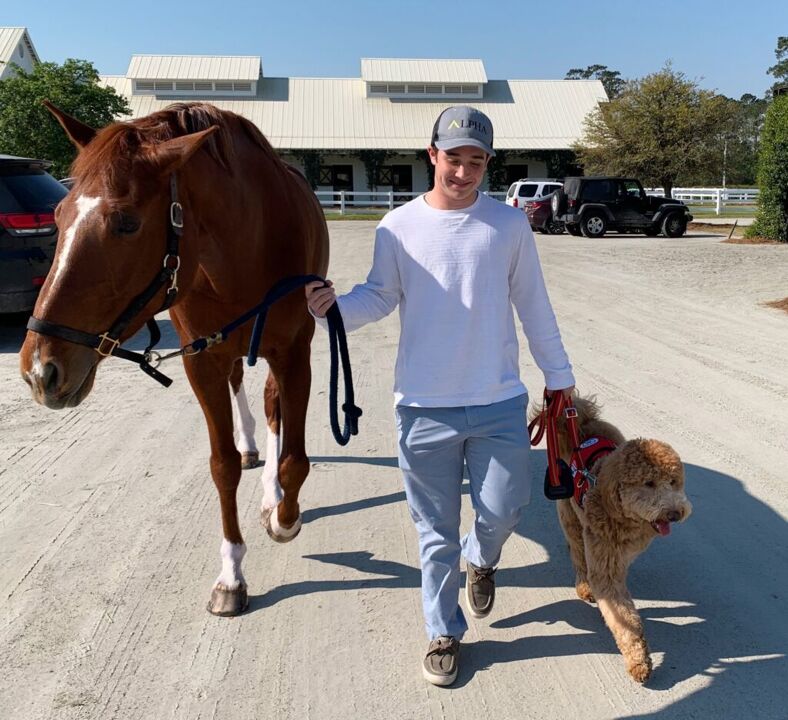
I came out as a transgender man by sending an email to my team, like my teammate. A vast majority of these friends for life said that they saw it coming. A special friend even came with me to cut my hair. My coaches were no exception. My parents, on the other hand, were caught off guard.
My father was the one who answered my call. At this point, I had come out to them once before and things had gone well. I assumed coming out a second time would be similar.
I asked if he and my mother had time to talk, but they didn’t, so I said I’d call them later that evening. I spent the rest of the afternoon typing a draft of what I wanted to say on my computer. This way, I wouldn’t forget anything when the nerves kicked in.
The dialogue culminated with my mother leaving the conversation and my father coming to the conclusion that it was just a phase. I was aware of the grief that some parents underwent while they mourned the loss of a child they thought they knew, but I was feeling a sense of loss too. I had disappointed them and I couldn’t figure out how to forgive myself for that.
The barn was the one place I found solace.
The barn was the one place I found solace. I wasn’t sure if my horse would even recognize me once I began to physically transition, but when I poked my head through the bars of his stall, he looked at me the same way he always had.
I suppose it could have been due to the fact that everyone appears to be identical with a helmet on their head, a pair of breeches and boots, but I imagine that it’s because he always knew that the person standing before him that day was the person I was meant to be all along, which was all the reassurance I needed.
Numerous studies have shared that horses are capable of reading human emotion by observing facial expressions. Horses remember a person’s mood and there’s no doubt in my mind that he noticed an easement emanating from my smile that he had never witnessed previously.
Without getting into great detail about rules governing transgender athletes in college, I decided leaving Mount Holyoke would be best for me so I could live authentically, unaccompanied by preconceived notions of who I once was.
I applied to New York University, Chapman University, the University of Southern California and the Savannah College of Art and Design. Out of those schools, SCAD was the only one with a varsity equestrian team. I considered attending one of the schools without an equestrian program; however, I was starting hormone replacement therapy and I knew embarking on that journey alone would be no easy feat, so I committed to SCAD.
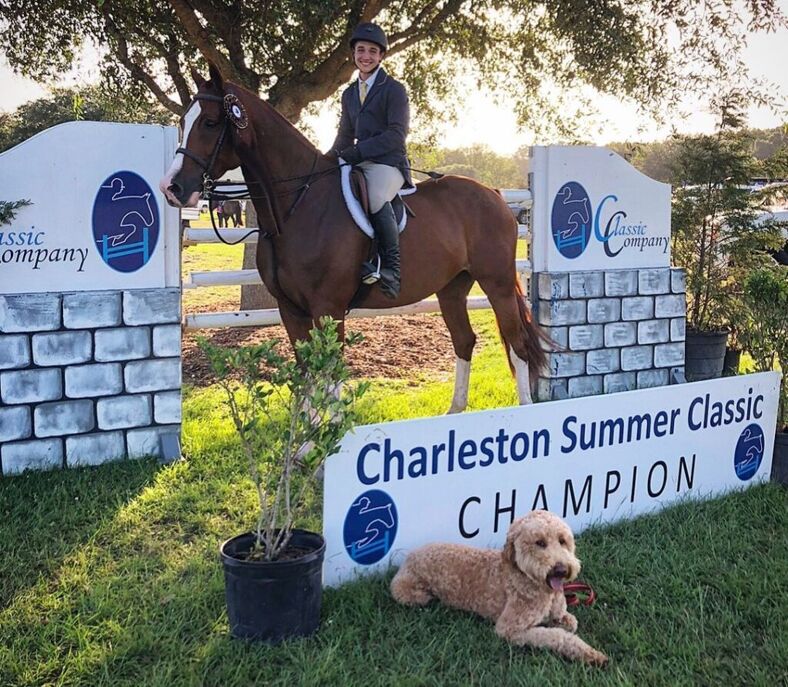
Although the acceptance I received from my Mount Holyoke family had blessed me with a sense of belonging, I still struggled to fully accept myself. I was “passing” as male, but I lacked some of the equipment that would’ve enabled me to perform certain tasks that a cisgender man may have been able to carry out in a more intimate setting. No one at the SCAD equestrian center questioned it though. Not once.
In the eyes of my coach, I was one of her boys. There were only seven of us, yet whenever the team traveled to another school for a competition, she made sure that she assigned me to a room with the other boys she had selected. I was scared her outlook on me would be altered when I told her about the double mastectomy that would keep me out of the saddle for two months, but it didn’t. Instead, she simply smiled and congratulated me.
Upon my return, I was selected to compete for the first time since I came out. It was a two-day show and I would be competing in a flat class both days. I had competed in flat classes previously, but the highest I had ever placed was third.
The first day didn’t go as well as I’d hoped. I ended up placing fifth out of six and I was frustrated because I was implementing old habits in spite of the fact that I had gone through a tremendous amount to become more confident and break them.
I rolled my shoulders back, exposing my newly flat chest and allowed my horses’ rhythm to lift me until I soared.
On the second day of the competition, I mounted a new horse and entered the arena once again. My mind started to drift, but when I picked up the trot, the energy coming from my horse empowered me to let go. I rolled my shoulders back, exposing my newly flat chest and allowed my horses’ rhythm to lift me until I soared.
I remember holding my breath as I waited for the results to be announced. When they were, I discovered that I had won.
I think the fact that the barn consistently embraced me despite all of the changes I endured was what helped me get past the insecurities surrounding my transition.
I’m still learning to accept myself; however, thanks to the privilege I received, I’m well on my way. Hopefully, environments such as this will become more prominent and members of the LGBTQ community that identify as transgender will stop feeling inferior to their cisgender counterparts.
Jay Robinson, 23, graduated from the Savannah College of Art and Design in May 2020 majoring in Dramatic Writing. He was a member of the Savannah College of Art and Design equestrian team. Since graduation, Jay has been developing a portfolio of scripts related to the LGBTQ community. He can be reached on Instagram @jrobb_83 or via email ([email protected]).
Story editor: Jim Buzinski
If you are an out LGBTQ person in sports and want to tell your story, email Jim ([email protected])
Check out our archive of coming out stories.
If you’re an LGBTQ person in sports looking to connect with others in the community, head over to GO! Space to meet and interact with other LGBTQ athletes, or to Equality Coaching Alliance to find other coaches, administrators and other non-athletes in sports.
